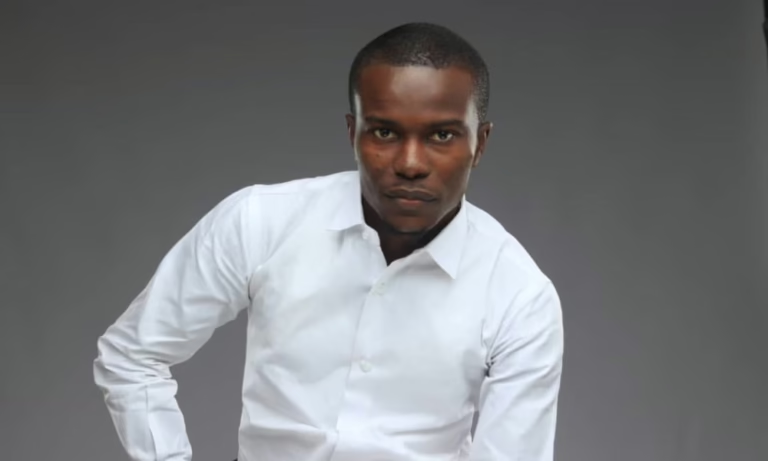In this edition of storytelling insights, I delve into how narratives packed with shock and sensational twists influence the way we communicate. Whether rooted in reality or fiction, these tales reveal how the extraordinary often becomes accepted as commonplace.
Bitterness and Blame
If you’ve seen Tyler Perry’s Acrimony, you likely found yourself torn over who truly deserved the blame between Melinda and Robert. Even years after its release, debates rage on about who acted rightly. Their story begins in college, where Robert, despite his academic brilliance, struggled financially and lived in an RV, while Melinda came from a more comfortable background but wasn’t the top student. Robert’s help with Melinda’s studies sparked a romance, leading to marriage despite his infidelity with Diana. It’s easy to dismiss Melinda as the “jealous wife,” but she sacrificed her own dreams, health, and future to support Robert’s ambitions. Though she eventually left, seeing Robert reunited with the woman he once cheated with ignited a fury few can comprehend. Truly, there’s no wrath like that of a betrayed woman.
Robert maintained he never strayed again and pointed out that Melinda bore the financial burden while he chased his business dreams. Diana, who came into the picture later, not only provided him shelter but also helped secure a crucial partnership and protect intellectual property rights. Robert acknowledged Melinda’s role with a generous payout, but did he cross a line by nigeria-govt-denies-asuu-agreement/” title=”…n Government Refutes Claims of Signing Agreement with ASUU”>fulfilling promises to Diana that he once made to Melinda? This tangled web of perspectives is what makes the film so compelling-each side presents legitimate grievances.
The Glamourization of the Absurd
There’s a saying about Nigeria that I hesitate to quote, yet it captures a certain surreal truth: “If someone explains Nigeria to you and you understand, they probably didn’t explain it well.” This reflects the frustration with those who dismiss criticism of the country as “de-marketing.” Let’s consider some headlines and reflect on how these stories shape global perceptions.
It’s troubling that vast sums are wasted on unnecessary inaugurations, sometimes celebrating less than 5% completion of projects. The same administration that boasts billions saved from subsidy removals and recovered funds still seeks foreign loans. The nation’s largest infrastructure project began without the mandatory environmental and social impact assessments. In a well-managed country, revelations of budget padding amounting to billions would dominate headlines, yet they barely make a ripple. For instance, the watchdog group BudgIT uncovered that nearly N390 billion was allocated for 1,477 streetlights-translating to an eye-watering N266 million per light!
In 2025, some students had to take their WASSCE exams by candlelight at night. This isn’t just a logistical failure; it’s a psychological trauma for those children. Before accusing critics of “de-marketing” Nigeria, ask yourself: are these the narratives we want the world to associate with our nation?
Bran the Unlikely Leader
HBO’s Game of Thrones, adapted from George R.R. Martin’s novels, remains a favorite for many. The series culminates in an unexpected choice for the Iron Throne-Bran Stark, a character whose journey defied traditional heroism. Bran, son of Lord Eddard and Lady Catelyn Stark, was paralyzed after a fall orchestrated by Jaime Lannister to conceal a scandalous secret. Though physically incapacitated, Bran developed mystical powers and became the “three-eyed raven,” the living repository of Westeros’ history.
Following the defeat of the Night King, the question arose: who should rule? Tyrion Lannister, the sharp-minded Hand of the Queen, argued for Bran, emphasizing the power of stories to unite people. He said, “What binds us? Armies? Wealth? Flags? No, it’s stories. And who has a better story than Bran the Broken? The boy who fell and lived, who embraced his limitations and became the keeper of our collective memory. He is best suited to guide us forward.” This perspective highlights leadership not as a function of strength or birthright, but as the stewardship of shared history and identity.
Stories of Faith and Unspoken Questions
Reading the Bible often sparks vivid imagery and imaginative scenarios, especially around moments that hint at deeper, untold conversations. Here are three such narratives that invite reflection on the complexities behind the scenes.
Abraham and Sarah longed for a child, and after decades of waiting, Isaac was born. Then, God commanded Abraham to sacrifice Isaac. Imagine the conversation Abraham had to have with Sarah, who named their son “Isaac,” meaning laughter, after years of hope. Abraham’s unwavering faith, believing God could even resurrect Isaac if necessary, earned him the title “Father of Faith” and foreshadowed the sacrifice of Jesus Christ.
Jonah’s story is another intriguing case. Though the Bible doesn’t mention a wife, one wonders about the awkwardness of his return after fleeing God’s command to preach in Nineveh. Instead, Jonah boarded a ship to Tarshish, only to be swallowed by a giant fish for three days. His eventual obedience led to the city’s repentance and became a powerful symbol referenced by Jesus regarding his own resurrection.
Mary’s encounter with an angel announcing her miraculous conception presents a unique dilemma. Engaged to Joseph, she faced the challenge of explaining a pregnancy without a human father-a biological paradox. Joseph’s initial doubts were resolved only after divine reassurance. This event marked the first immaculate conception, fulfilling ancient prophecies and underscoring the incarnation of Jesus as God made flesh.
The O.J. Simpson Saga: A Trial Beyond Crime
Orenthal James Simpson, a celebrated football star and actor, became infamous after the murder of his ex-wife Nicole Brown Simpson and her friend Ron. Instead of surrendering, Simpson led police on a dramatic car chase, captivating the nation. His trial, dubbed “The Trial of the Century,” transcended criminal justice, exposing racial tensions and institutional scrutiny. Even world leaders, like Russia’s Boris Yeltsin, were captivated, famously asking then-U.S. President Bill Clinton, “Do you think O.J. did it?”
Finding impartial jurors was a monumental challenge, as the trial scrutinized not just Simpson but the LAPD, media, and legal system. Despite compelling forensic evidence, Simpson’s defense team-the “Dream Team”-crafted a more convincing narrative. The iconic defense line, “If the glove doesn’t fit, you must acquit,” became a defining moment that swayed the verdict.























0 Comments